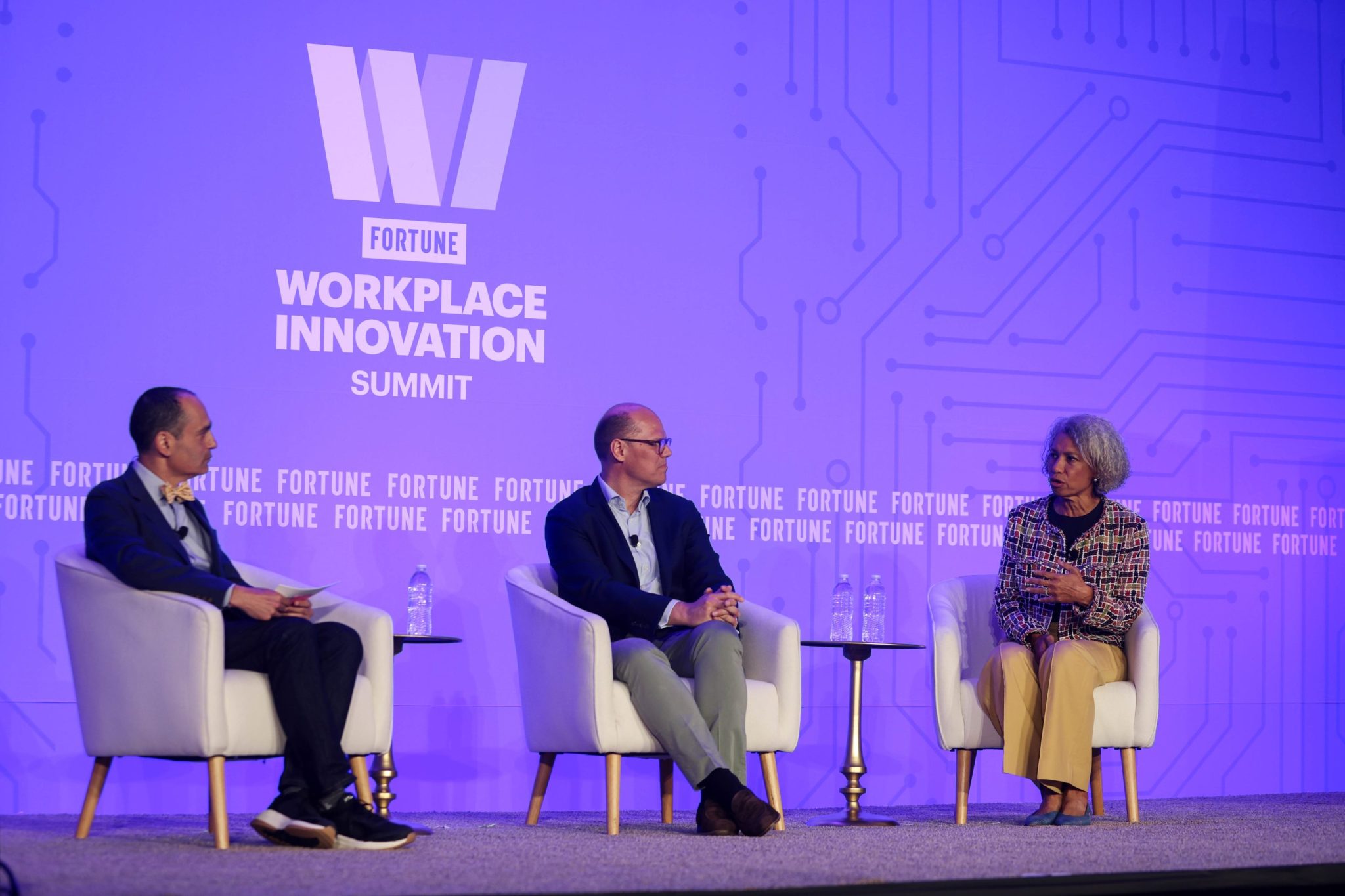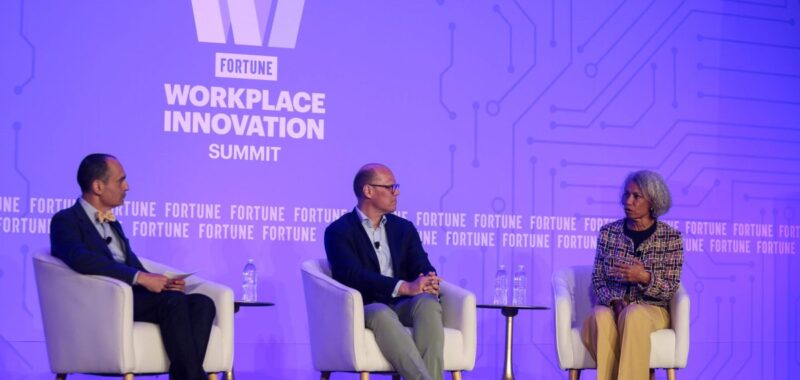
Good morning!
As companies look to cut costs, many CEOs are looking to trim bloat at the middle-manager level. Amazon CEO Andy Jassy said in March that he plans to flatten the company’s corporate hierarchy by eliminating middle managers and giving more power back to individual contributors. And he’s not alone in this thinking.
In a bid to turn the company around, struggling German pharmaceutical giant Bayer made a drastic decision last year: doing away with middle managers and 99% of the company’s 1,362-page corporate handbook.
“This wasn’t an effort to just slash and burn,” said Sebastian Guth, chief operating officer at Bayer Pharmaceuticals at the Fortune Workplace Innovation Summit on Monday. “Eighteen months ago, we embarked on a very radical transformation and as part of that I eliminated, here in the United States, for example, 40% of all middle managers, which was—which is—hard, but it was necessary to see our organization transform into a world that is significantly more agile and that empowers teams to make decisions.”
And he says the decision has led to significant growth for the company, with first quarter results showing 23% growth across North America. Not everyone, he noted, was eliminated just because they were a middle manager. In fact, Guth said that some roles were transitioned from a managerial one to that of an individual contributor. The shift helped them “realize that part of what they did previously wasn’t actually adding as much value as they wanted to.”
That said, not all leaders believe that eliminating middle management is the right solution. For example, Edith Cooper, cofounder of professional training and coaching firm Medley, said during the same discussion that the solution isn’t about seeing how many roles you can eliminate. Instead, executives should seek out bottlenecks across the organization and target their attentions there.
“If you are looking to create more impact and productivity from your No. 1 asset, for people, you need to do the work,” said Cooper. “Really look critically at what needs to happen to unlock the potential of your people. Then, if there are places in that flow that become bottlenecks, you should do the work to understand how you eliminate [them].”
Even Guth admitted such an extensive overhaul should be done strategically. Bayer invested significantly in upskilling the managers who remained and eliminated traditional management targets in budgets, he said, which was a “very important unlock.” And most important, he said, is to let teams themselves have some say in the changes so they’re not only streaming down from on high.
“We allow teams to flow resources to where they saw the biggest impact, and most importantly, we allow teams to actually decide, because we have thousands of colleagues around the world that have amazing insight and knowledge,” said Guth. “Rather than just waiting for others to decide on their behalf, we lean into what they experience and see in the day to day.”
Brit Morse
brit.morse@fortune.com
This story was originally featured on Fortune.com

